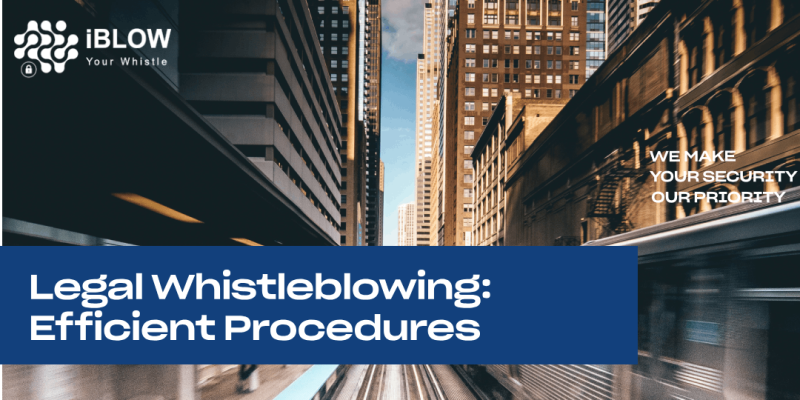Handling reports related to the Whistleblowing Act requires specific procedures to ensure that reports are dealt with effectively, fairly and in compliance with the regulations in force. Here we summarize some of the appropriate procedures for dealing with whistleblowing reports under Law 93/2021:
Receiving and Registering Reports
Establish a secure and confidential system for receiving reports. This should include a secure online portal, outside the entity’s information and technical support system, specifically for whistleblowing. Make sure that all the reports you receive are recorded securely and with strict access controls that are completely limited to the person responsible for handling each report.
Confidentiality and anonymity
Ensure that whistleblowers have the option of remaining anonymous, if they wish not to disclose their personal details (such as name, telephone number, email address, IP address, etc.). Maintain the confidentiality of information by restricting access to it as much as possible and protect the identity of whistleblowers by using well-defined processes to safeguard the exposure of information.
Initial assessment
After receiving a complaint, carry out an initial assessment to determine the nature of the irregularity, its seriousness and what immediate measures may be necessary.
Appoint a person in charge!
Assign a person responsible for overseeing the handling of the complaint, usually a member of the compliance team or a committee appointed for this purpose.
Proper Investigation
Initiate an impartial and thorough investigation of the complaint. If necessary, involve internal or external experts in the investigation. Make sure that the investigators have no conflicts of interest with the parties involved in the complaint.
Protection against retaliation
Ensure that whistleblowers are protected against any kind of retaliation and that their identity is kept confidential unless they express otherwise. Clearly communicate the non-retaliation policy and implement protective measures if necessary.
Communication with the Whistleblower
Keep the whistleblower informed of the progress of the investigation, maintaining confidentiality or anonymity as appropriate to each case, complying with the response deadlines at each stage. Provide a secure communication channel for the whistleblower to ask questions or provide additional information.
After the investigation, communicate the results to whistleblowers and appropriate stakeholders. This helps build trust in the process and demonstrates the organization’s commitment to resolving issues fairly and transparently.
Documentation and Evidence
Carefully document all stages of the investigation, including interviews, relevant documents and evidence collected. This is essential for future reference and, if necessary, for legal purposes.
Evaluation of Results
After the investigation, evaluate the results impartially and objectively. Determine whether an irregularity has occurred, and if so, identify the necessary corrective measures.
Corrective Actions
Implement the necessary corrective actions to remedy the irregularity, including disciplinary measures, if applicable.
Compliance Reports
Prepare compliance reports in accordance with regulations and legal requirements. This may include reports to the competent regulatory body.
Registration and follow-up
Keep a record of all reports, investigations and actions taken. Track the progress of corrective actions and periodically evaluate the whistleblowing system to improve it.
Education and Awareness
Carry out regular training for employees and stakeholders on the whistleblowing policy and the importance of complying with regulations. Ensure that your staff, especially those responsible for handling whistleblowing, are properly trained and educated to deal with whistleblowing in a sensitive, ethical and effective manner. They must be aware of how to follow procedures, maintain confidentiality and ensure that reports are dealt with fairly and impartially.
Promoting a Culture of Ethics
Encourage an organizational culture of ethics and integrity, in addition to complying with legal regulations, by promoting these vectors throughout the organization. This will reduce the likelihood of whistleblowing and increase employee trust in the company.
Dealing with Whistleblower Act reports is a critical part of corporate governance and legal compliance. It is important that organizations follow proper procedures to ensure that reports are dealt with fairly and in compliance with applicable laws.
This process requires commitment and resources from each organization, but it is essential for maintaining an organization’s integrity and reputation. An adequate system not only complies with legal requirements, but also strengthens employee confidence, helps prevent problems before they become crises and brings relationships closer, by increasing the vector of credibility, with other stakeholders.
Find out how our whistleblowing software simplifies the reporting process.
Published in: 2023.10.25
